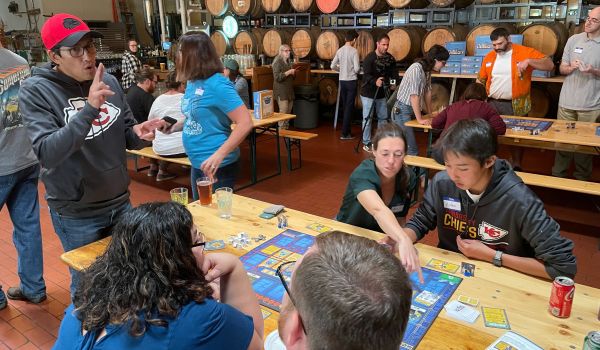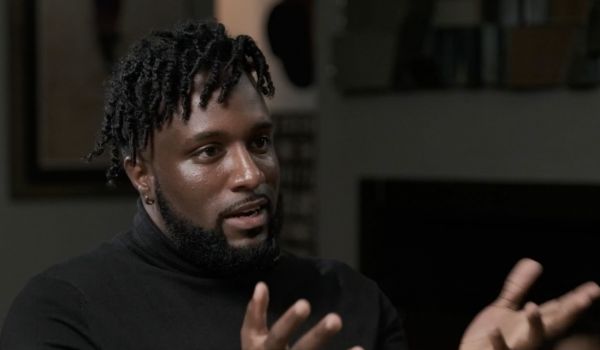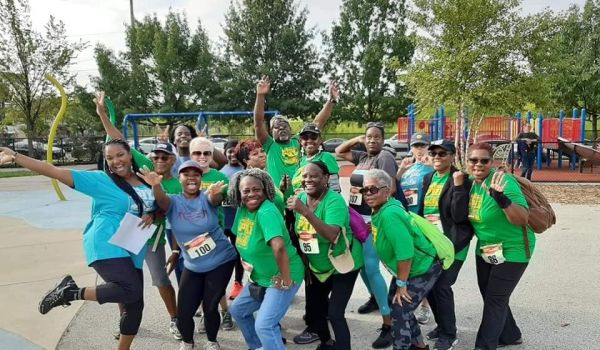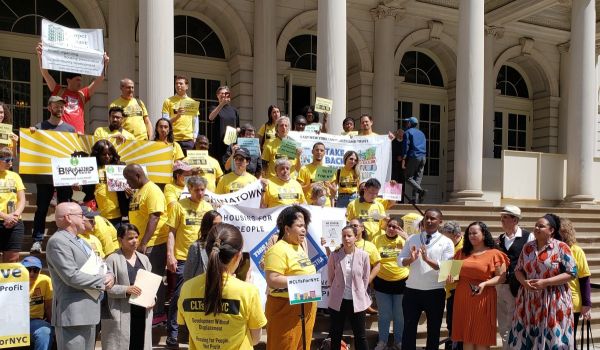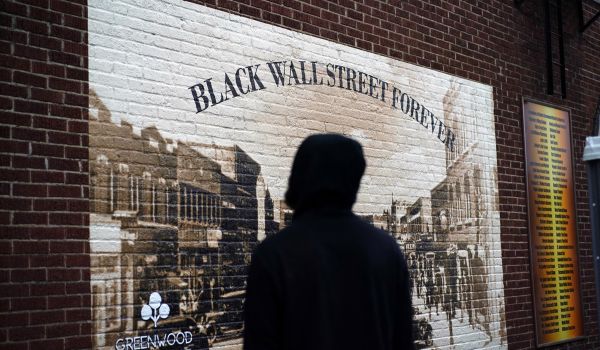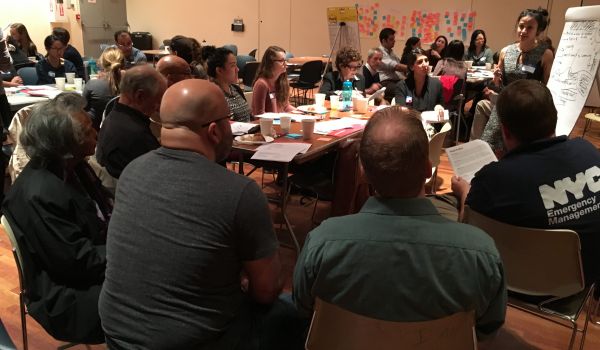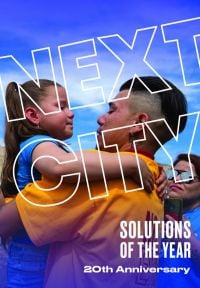The choice we’re facing in November is simple. It isn’t between Democrats or Republicans, left or right, Blue America or Red America. It’s between breaking up or staying united, a choice as fundamental as any the nation has faced in at least a century.
On one side of the ledger are the major stumbling blocks of American politics, the issues that have grown so big and polarizing they defy calm, reasonable exchanges, let alone solutions. Abortion, gun control, immigration — those are overwhelming arguments that, while crucial to have, aren’t going to do much to bring us back together.
Here’s what will: cities. And candidates on the ballot this fall need to understand cities and know how to support urban coalitions to get things done.
To understand why cities are an important lens through which to view the upcoming election, consider the following two statistics. First, about 83% of all Americans currently live in urban areas, and because all politics are local it means that thinking creatively about urban life is essential for anyone interested in attracting a large number of voters.
This is particularly true considering what most voters care about: When asked by pollsters, 80% of Americans repeatedly reply that the issue they care most about when casting their ballot is the economy, by which they mean not some abstract theoretical concept but rather their ability to find and hold gainful employment, provide for their families, and enjoy all the pleasures and privileges of financial security and stability. Very often, their ability to do so depends on their city’s ability to offer the right opportunities and foster the right kind of growth, which means that anyone wishing to bring people together in November should worry less about big sweeping ideologies and more about making our cities as great as they can be.
How? We here at Tulsa have been grappling with the question for quite some time and with more than a little bit of success. And we’ve three completely unorthodox ideas to offer, for starters, to anyone interested.
Begin, appropriately, by drawing a map, not of the city’s limits but of its ecosystem. Once you identify the various players working to make life better in your city, you’ll be surprised how frequently these well-intentioned institutions and individuals are laboring on their own rather than teaming up and making sure no resource goes wasted. The organization I head, for example, Tulsa Innovation Labs, connects the city’s government, its community college, its largest philanthropic organization, and traditional businesses like oil and gas companies and healthcare providers, to make sure our vision is aligned and that we’re pooling our resources collectively and optimally.
The first step, then, to making a city great is to convene players from across sectors and teach them to think of themselves as interconnected partners. Elected leaders can do this, but often don’t — or don’t show they will when running for office. Once these wildly disparate parties — NGOs and VC firms, legacy industry and start-ups, chambers of commerce and angel investors — understand that they can support and boost each other’s success, the likelihood of fruitful investments and collaborations grows much higher.
But just having a great ecosystem isn’t nearly enough, because even the most fertile ecosystem isn’t worth much unless it’s populated and cultivated by the best and the brightest talents. This is what we’re doing right now in Tulsa: Realizing that many of our most promising people, despite having left the state, continue to be Oklahoma champions at heart, we are reaching out to these ambassadors to help us raise awareness for initiatives and opportunities and, whenever possible, creating local assets that generate the sort of job opportunities that might lure them back.
Consider, then, creating an alumni network, encouraging graduates of local universities to continue and maintain ties to the city rather than taking their newfound skills elsewhere. And this, of course, is saying nothing of such a network’s potential to help motivated and bright young men and women find easy access to mentors, investors, and other potential partners who can help them on their career path.
Now that you’ve a thriving economy with ample opportunities for all, it’s time to take care of the third, and arguably most important, facet of city life: Community art. If you think art isn’t as important for a city’s future as commerce, think again: Cities, like every other human endeavor, can only thrive if they tell great stories, stories that convince people to settle down and raise families and build a business in one place rather than another. Public art not only gives voice to communities too often rendered invisible by systemic inequality, but it also helps a city convey, to residents and visitors alike, its values, its style and its soul. Tulsa’s Greenwood Art Project, which commemorates the centennial of the Tulsa Race Massacre, is a great example of how art can engage a troubled past and facilitate dialogue and solutions for the future. And public leaders can connect local arts groups to the funding they need to express their city’s story.
A city is, by definition, a crucible where people from very different backgrounds are pressed together by proximity into something wonderfully cohesive: a community. And a community needs not politicians but leaders, men and women wise and unconventional enough to tap into the almost alchemical convening quality of city life.
Those who do will win big – not just in November but for a very long time to come.
Nicholas Lalla is the founder and managing director of Tulsa Innovation Labs.



